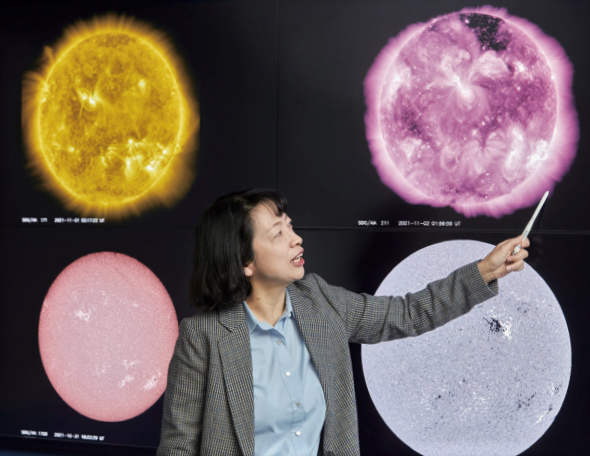
On June 21 4 p.m. KST, South Korea’s Nuri rocket was successfully launched from Naro Space Center redeeming last year’s failed attempt. The rocket is a three-stage launch vehicle topped with five satellites developed by the Ministry of Science and ICT and the Korea Aerospace Research Institute to carry out Earth observation missions. The triumph drew substantial attention globally as it was the first space rocket to have ever been developed solely based on domestic South Korean technology.
“After a long thirty years since the launch of South Korea’s first satellite KITSAT-1, we now have what we refer to as space sovereignty, meaning that we can launch our own satellites whenever and wherever within the country – it surely is a huge milestone,” said Hwang Junga, a physicist and system engineer engaged in the Small Scale magNetospheric and Ionospheric Plasma Experiment (SNIPE), expected to be launched in 2023.
Space technology plays a crucial role in national security. Therefore, unlike other fields of technology, relying entirely on other countries is not an option. Each country stands alone in developing their own technologies for space exploration.
The whole concept of countries working independently for aerospace technology has always seemed to trigger competition between countries. The better the technology is, the further in the lead the country. However, competition exists now in a different form. These days, motivation has shifted from the traditional system competitions to a more pragmatic one, according to Hwang.
“Competition these days regards securing space resources, the growth of space industries, and activating the space economy,” Hwang said. “There was a Mars exploration race between the United States and China last year, and countries are competitively heading to the Moon this year. Fierce competition to gain energy and resources in space is always on the move even at this very moment.”
The urge for space exploration goes deeper, dating all the way back to the start of humanity. Hwang believes astronomy has always been intricately and closely related to the lives of humans.
“When earlier civilizations started to flower, humans discovered space through religion, construing its movements as prophecies for the future,” Hwang said. “Astronomy has not only been used practically but also has widened the human perspective of viewing the world, continuously replying to fundamental questions of mankind as well as encouraging scientists to challenge themselves on a new level of technology.”
You Hojong, author of the book “Philosopher’s Stroll through Space” with a doctorate in philosophy, describes the human desire to discover space in relation to human history as well as the philosophical perspective of scientific research.
You stated that those from the High Middle Ages perceived space as divine and therefore felt a sense of awe, while people from modern history thought of it as a hollow space and felt futility towards it. This transition in perspective on space has motivated humans to discover space.
“Humans are surrounded by the unknown, giving them the opportunity to choose where to start their research,” You said. “Today, the urge to discover space can be seen as the urge to study ‘the leftover uncultivated land’ since the vast development of modern science and technology.”
However, in his opinion, many scientists neglect and overlook some of “the leftover uncultivated land” just because it goes against their views, despite that it is in fact worth studying about. He believes that it is necessary for scientists to discard this mindset and replace it with a more open one when conducting space research.
With regard to the direction of future space research, You cautiously addressed his thoughts on the difficulties in verifying the exact philosophical theories to be used. Although most scientists have emphasized the significance of the traditional physical perspective, recent research results have proposed other possibilities that tend to be considered anti-traditional.
In 2021, South Korea and the United States agreed to end the 40-year-old restriction on limiting the range and payload of South Korean ballistic missiles at the cost of being provided with missile-related technology from the United States. With these limitations lifted, South Korea is currently starting to face its golden age in space development. Still, space exploration by South Korea as a whole has a long way to go.
“Studying space has never been easy, and will not be in the future too,” Hwang said. “Though it may seem tough without any models to learn from, it can also be a meaningful and exciting experience.”

